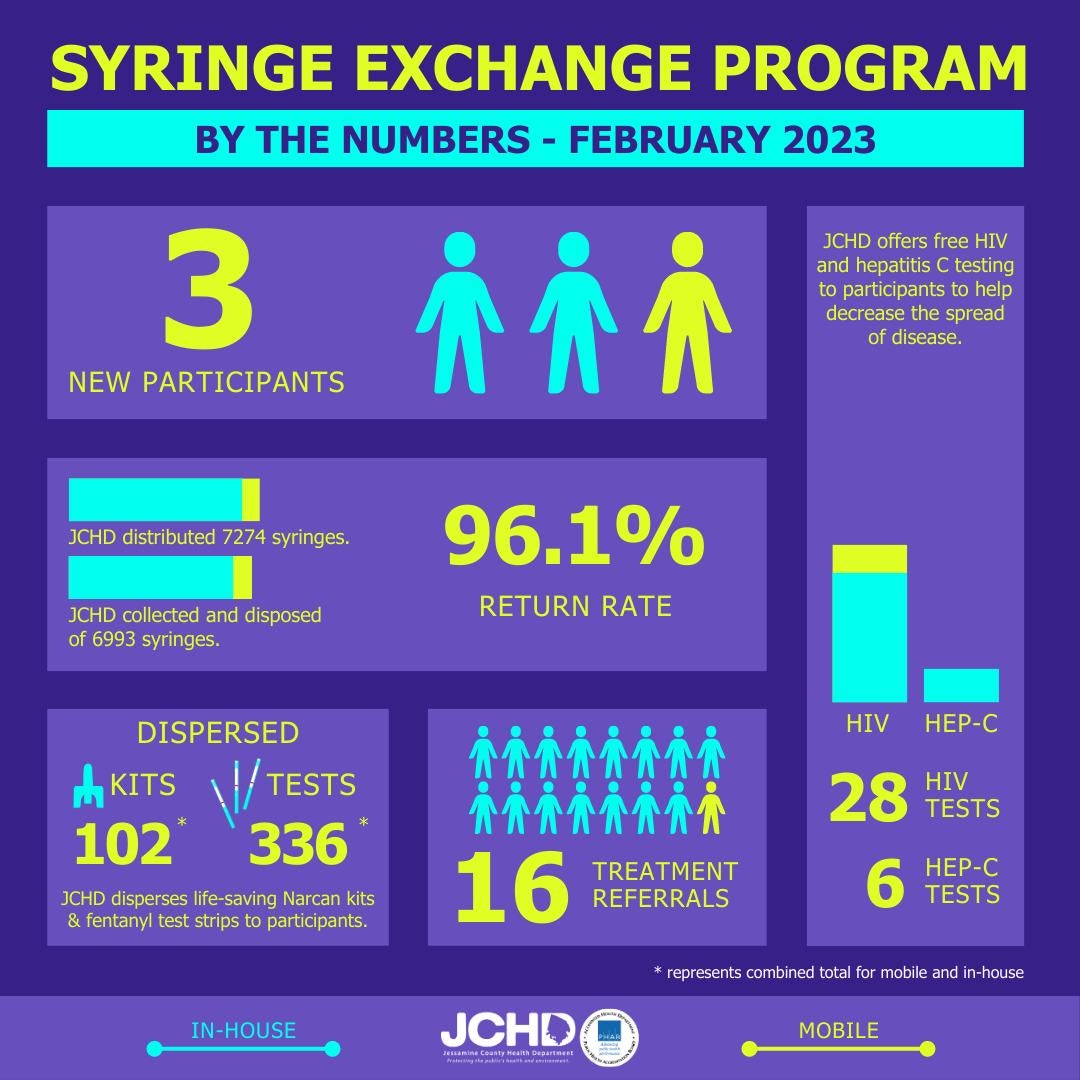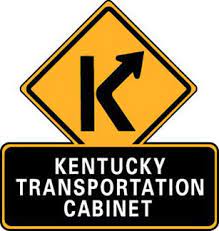Health department Syringe Exchange Program helps fight sexually and blood transmitted diseases
Published 2:51 pm Wednesday, March 29, 2023

- The syringe program’s numbers for February. (Graphic courtesy of Jessamine County Health Department)
|
Getting your Trinity Audio player ready...
|
Since 2016, the Jessamine County Health Department (JCHD) has offered its Syringe Exchange Program (SEP), providing residents with a new syringe in exchange for a used one.
Harm Reduction Director, Sidney Bisschop, leads the SEP at the health department. She said that anyone can use this service but that they are focused on people who inject drugs. Typically, participants of the program come in for the program once a month. Bisschop says her team of five sees 240-300 people a month.
Participants are never asked for personal information and instead receive a provided code to use as identification with the JCHD. To join, go to JCHD at 210 East Walnut Street whenever it is open, from 8 a.m. to 4 p.m. Monday through Friday, or find a JCHD van. This van is a mobile harm reduction unit where people can participate in the Syringe Exchange Program.
The mobile harm reduction unit exists to make the service accessible to people throughout the county who don’t have transportation. Bisschop’s team drives all over the county and to specific overdose “hotspots” which are provided by JCHD’s community partners: the Nicholasville Police Department (NPD), Jessamine County EMS, and the Sheriff’s Office.
“We are a one-to-one (syringe) exchange. So, a person has to bring one syringe in order to get one back. The reason we do that is to keep our streets clean, so people aren’t throwing them in the garbage, or local parks or parking lots, and the NPD has actually reported that our program has significantly decreased their calls for having to come out and clean those situations up,” Bisschop said.
The JCHD also gives out “the works”- including safe cookers, cottons, and tourniquets.
“So that way, people aren’t reusing or sharing because Hepatitis C and HIV can be transferred through those things as well,” Bisschop said. “So we have that one-on-one discussion with them about safe usage, and we also have safe sex practice talks every time a person comes in. We do sex education, we do HIV and Hepatitis C testing.”
Not only does the program help keep public areas clean from used needles, but it also allows Bisschop to create relationships with residents who have substance use disorders. “
This is a syringe exchange program but it’s also a safe place for people to know, if I need help, this is where I go,” she said.
This relationship ensures that people with substance use disorder know they have support and options for recovery.
“We just try to see if they’re ever interested in treatment. We always say we’re here when they need us, so if they ever are ready for that, we have people that we get in all the time who are ready to make that change in life,” Bisschop said.
SEP is helpful for unhoused people who have substance use disorder, but they’re far from the only people who benefit from it.
“A lot of people think it’s your typical homeless person, or it’s your person that walks up and down the street and it’s not, we serve a lot of people in this community who have jobs, who are working citizens. People who give back to the community who utilize our services, It’s eye-opening,” Bisschop said.
How it started
In 2015, the Kentucky state government started it all. The General Assembly enacted SB 192, a bill allowing local health departments to operate syringe and needle exchange programs for harm reduction.
But before this bill was enacted, the Jessamine County Health Department had already started planning for the possibility of a SEP.
Director Randy Gooch led efforts in implementing the program by preparing a set policy and procedure and proceeded to present the program to the Nicholasville City Commission and the Jessamine County Fiscal Court. He received full support from the city and county, and Jessamine became the fourth county in the state to start a SEP.
According to Bisschop, rates for HIV and Hepatitis C are “much” higher in Kentucky than anywhere else in the country, and Jessamine County’s averages for those bloodborne viruses are three times higher than Kentucky’s average.
Bisschop said it was “pretty cool” that Jessamine County was one of the first of 120 Kentucky counties to launch this program and that it had to happen.
“Our community was saying that we needed it and our local leaders needed it and it was implemented,” she said
Other than the syringe exchange, the health department offers Hepatitis C and HIV testing, and Naloxone- which is an emergency treatment for a narcotic overdose.
The health department is also planning on setting up Naloxone boxes around the county. The first box was installed in February at the Jessamine County Detention Center.
“Every year our numbers increase, positively and negatively. Jessamine County continues to grow and we continue to build here so our services are gonna continue to grow when our population is. Last year alone we helped 60 people who were identified as homeless and we got them into treatment in 2022.” Bisschop said her team will hopefully grow soon, and they will continue to provide syringe exchange services.
For more information on the Syringe Exchange Program and everything JCHD’s Harm Reduction office does, head to www.jessaminehealth.org/harm-reduction.




